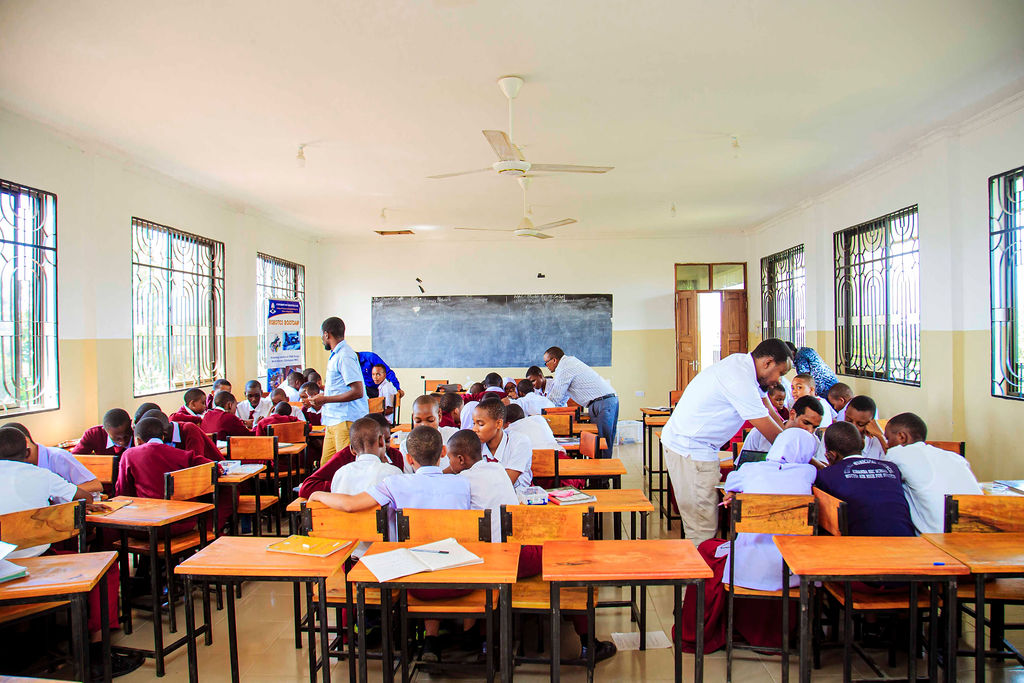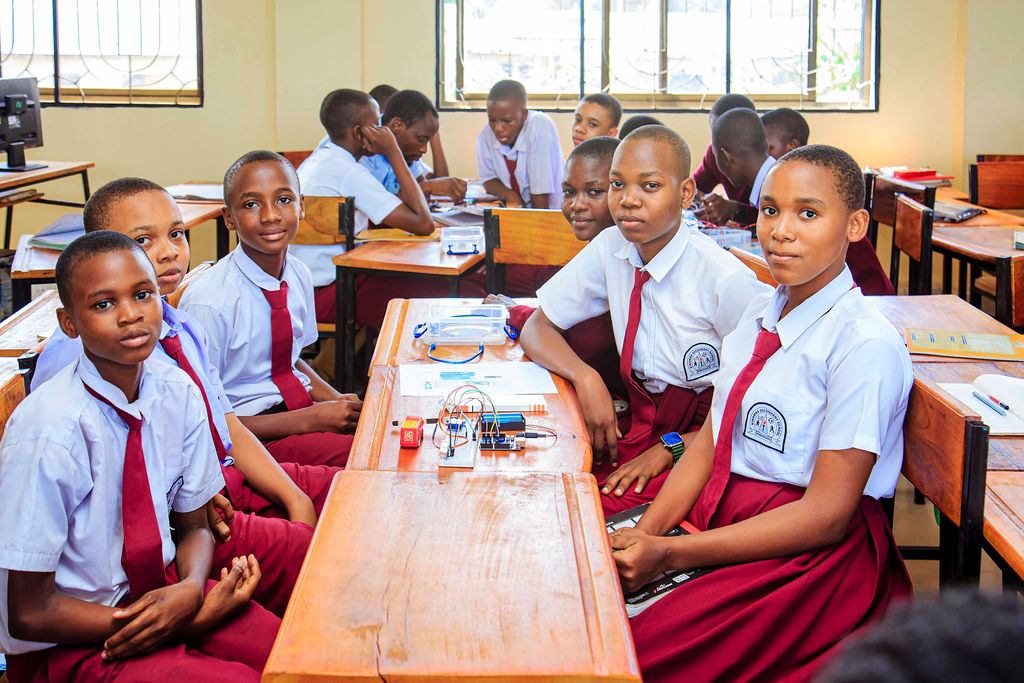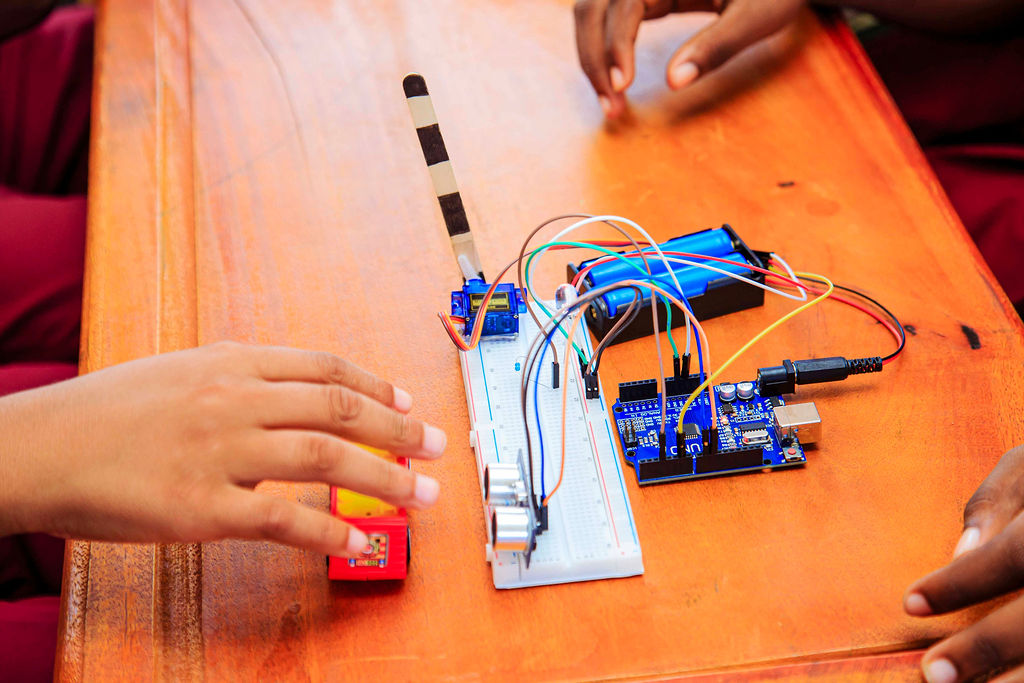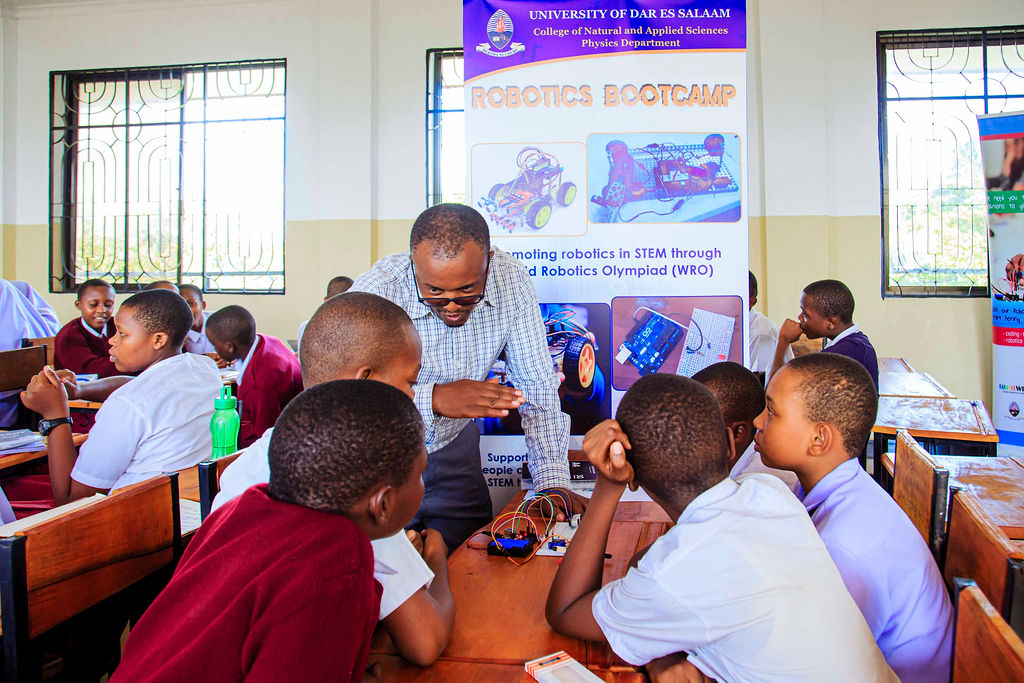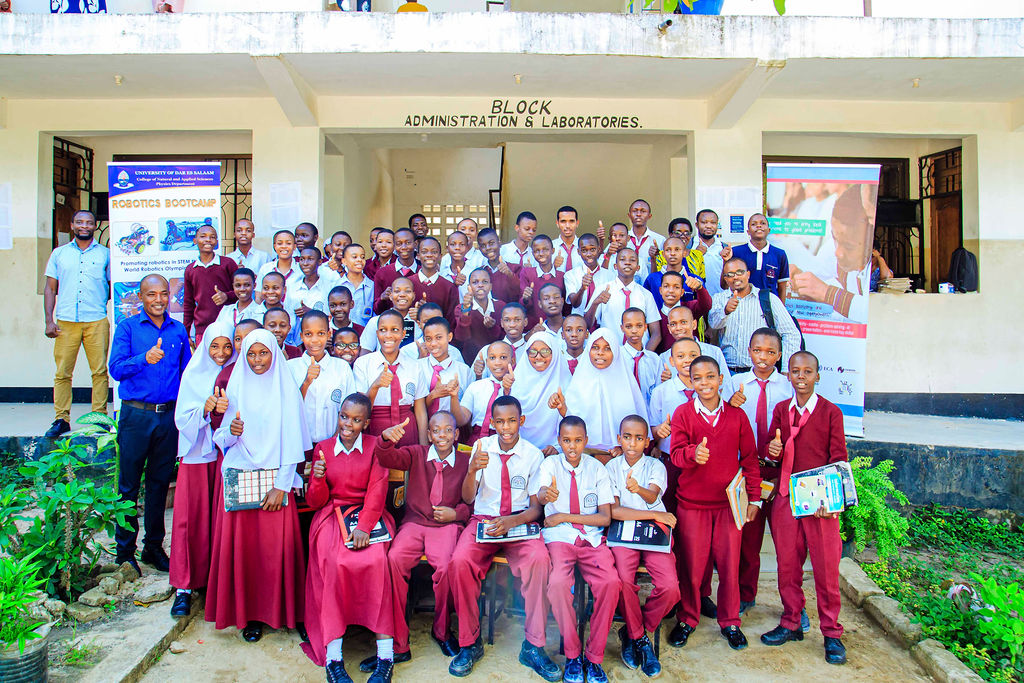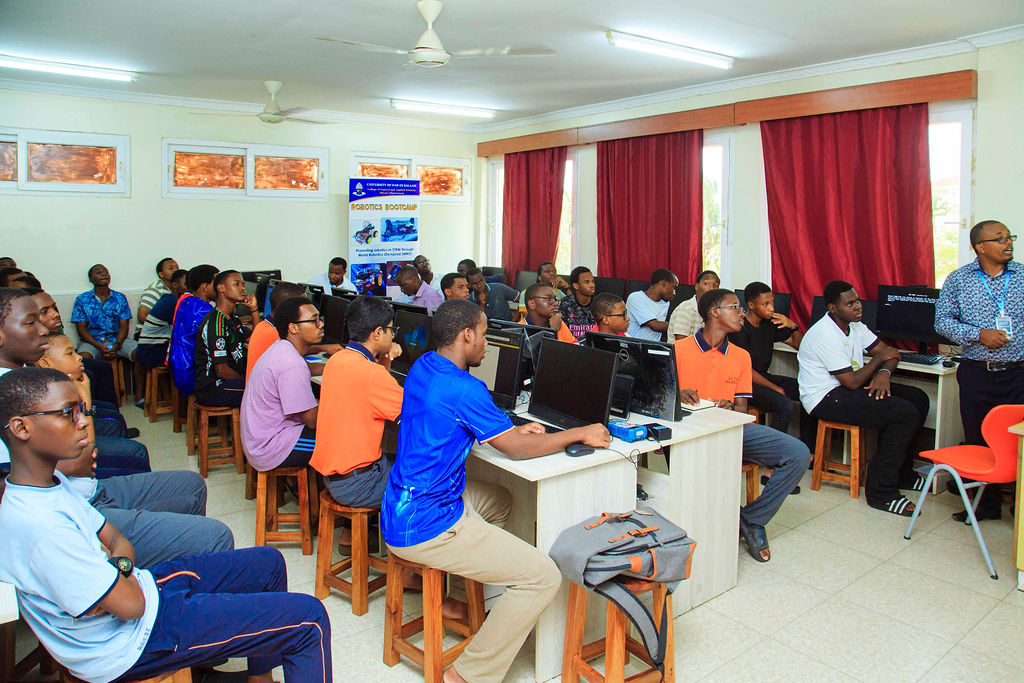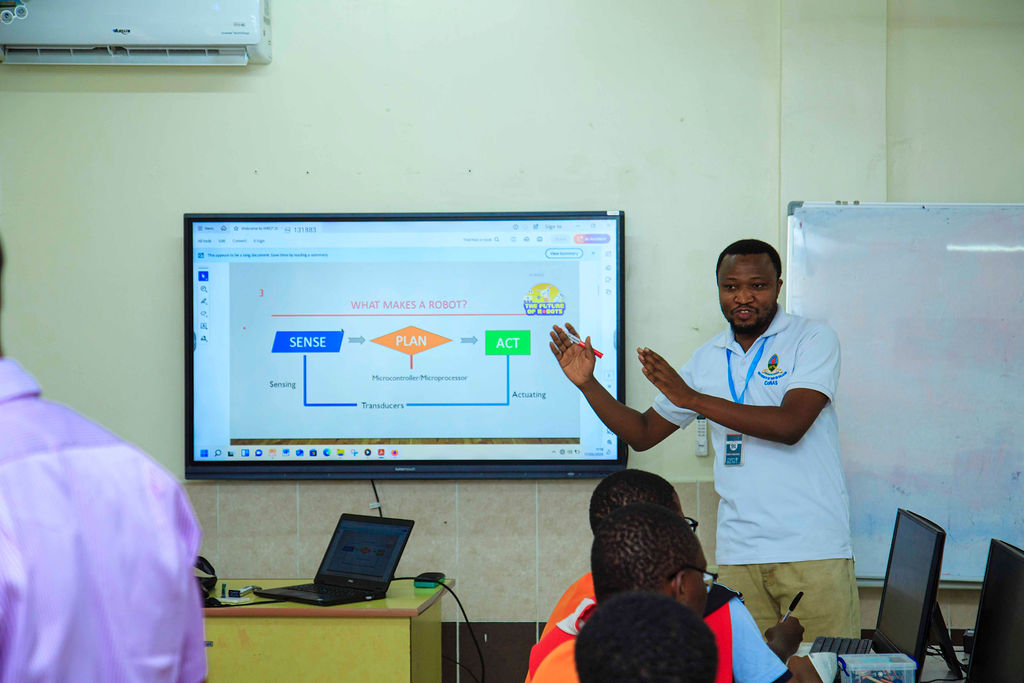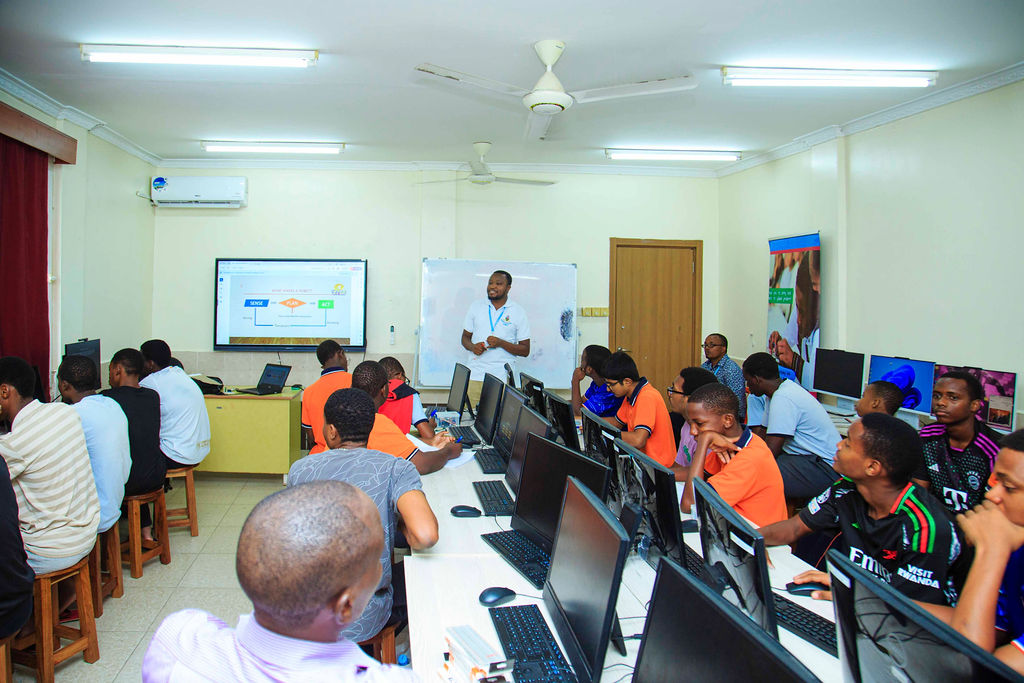Department of Physics Organises Robotics Bootcamp, Ignites Inclusive STEM Breakthrough in Tanzania
By Jackson Isdory, CMU
The Department of Physics at the University of Dar es Salaam has successfully wrapped up the second Robotics Bootcamp, an inspiring national initiative that engaged 556 secondary school students, including 100 with special needs, from 11 schools across Tanzania.
Backed by Google and Ireland’s Camden Education Trust, the programme went beyond technical training to champion inclusive innovation, science learning, and youth empowerment.
Prof. Flora Magige, Principal, College of Natural and Applied Sciences, commended the programme as a bold and timely response to Tanzania’s and Africa’s urgent need to nurture homegrown innovators, saying it sought to democratise access to 21st-century skills in robotics, engineering, and physics.
“This initiative reflects UDSM’s strategic vision not just to teach, but to transform. We believe every child, regardless of background, sex or ability, deserves access to the technologies that will shape tomorrow. This bootcamp is a symbol of that future”, said Prof. Magige.
She said that the UDSM Robotics Bootcamp was not just a training programme, it was a catalyst for nurturing the next generation of scientists. “Participants experienced hands-on robotics training that integrated real-world problem-solving, creativity, collaboration, and design thinking, competencies essential for the knowledge economy”.
This year’s Bootcamp, was held in six public and five private secondary schools, including Jangwani Girls, Azania, Alpha Girls, Baobab Boys, and Feza Boys. A standout feature was its focus on inclusion, with specialised engagement for students with disabilities, making it one of the few robotics programmes in Africa to embed accessibility from the start.
According to Dr. Mwingereza Kumwenda, Head of the Department of Physics at UDSM, this bootcamp is aligned with UDSM’s academic mission to blend physics education with applied innovation. He emphasised,
“We are nurturing problem-solvers, not just students. Our next phase will accelerate this vision through advanced training and national competitions”, said Dr. Kumwenda.
Transforming career aspirations
A student from Chang’ombe Secondary School shared how the experience has transformed her career aspirations. She noted, “I now understand how robotics connects with physics to solve real-life problems. I want to build medical robots to support surgery in hospitals. This bootcamp has instilled in me a stronger determination to excel in science”.
“This bootcamp has empowered me,” stated a student with special needs from Jangwani Girls Secondary School. “I now see myself pursuing IT and robotics despite using a wheelchair. I believe I can become a programmer and contribute to society.”
A Baobab Boys student expressed similar inspiration: “I loved learning how to build a robot circuit. I hope my younger siblings will have this opportunity too. This has opened my eyes to what I can achieve.” His palpable excitement underscored the hope ignited in participants.
Led by Eva Tito Shana, National Coordinator for World Robot Olympiad (WRO) Tanzania, the Bootcamp team featured academic staff Dr. Hezekia Buay Sawa, Mr. Hashim Rajabu, Mr. Safari Lamsi, and Mr. Gilya Sungi.
Reflecting on the initiative, Ms. Shana declared, “This Robotics Bootcamp was not merely about technology; it was a movement to ignite dreams and build confidence. Our students are now preparing to represent Tanzania on the global stage at the World Robotics Olympiad in Singapore, 26–28 November 2025 – and they are ready.”
A launchpad for the next generation
As part of the post-bootcamp momentum, selected students from participating schools will attend advanced robotics training at UDSM’s Physics Department on 15th–16th August 2025, where different stakeholders will attend, and the programme will culminate with the National Robotics Finals on 3rd October 2025, where student-built robots will compete for innovation excellence.
According to Dr. Hezekia Buay Sawa, this initiative is also a flagship example of the University’s outreach beyond academia. He noted, “International partnerships with institutions like Google and Camden Education Trust showcase what is possible when global goodwill meets local ingenuity. We are proud to be exporting not just Tanzanian talent, but Tanzanian solutions.”
Speaking about this programme, the Director of Public Service at the University of Dar es Salaam, Prof. Neema Mori, underscored the strategic imperative of early STEM engagement as a cornerstone of national development and public impact.
“At the University of Dar es Salaam, we recognise that innovation is not confined to the walls of academia; it begins in the foundational stages of education. Initiatives such as this serve as catalytic platforms that connect early learning with high-level research, thereby nurturing a robust talent pipeline of future African scientists and innovators”, said Prof. Mori.
Prof. Mori further called upon other university units to emulate this mission-driven, inclusive approach. “We encourage our internal stakeholders and institutional partners to replicate and scale up such transformative STEM education models. Advancing public service means preparing the next generation, not only to lead, but to think critically, respond innovatively, and shape solutions for societal progress.”
The UDSM Robotics Bootcamp is more than a programme; it is a declaration. A declaration that Tanzanian youth, regardless of school, sex, or ability, are ready to imagine and engineer the future. Through visionary leadership, strategic partnerships, and an unwavering commitment to equity and excellence, the University of Dar es Salaam is building not only robots but also resilient and resourceful citizens.



